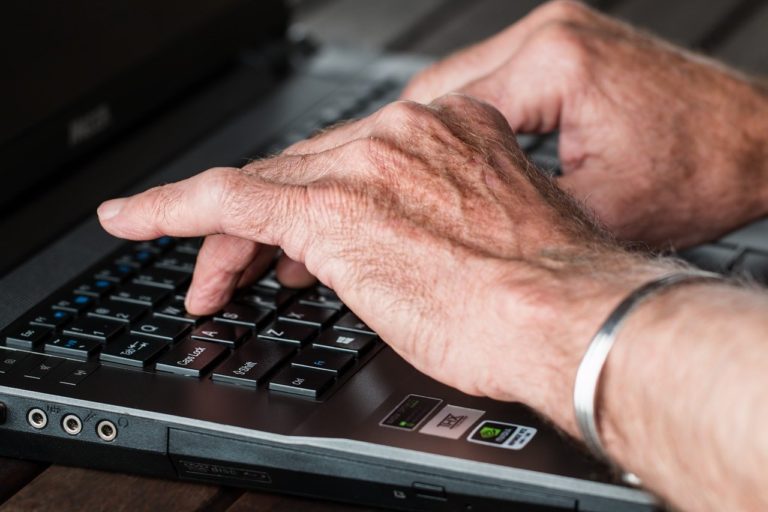
Older generations haven’t had access to digital literacy education — these workshops are changing that
We hear a lot these days about “fake news,” but research shows that older adults genuinely struggle with being able to identify what stories are true versus what stories are fabricated. During an election year, being able to make this distinction is incredibly important. To that end, digital literacy workshops are quickly sprouting up all over the country, designed to help people of older generations understand the importance of fact-checking.
According to an NPR story, workshops like “How to Spot Fake News,” sponsored by a nonprofit called Senior Planet, are teaching older adults how to check sites like Snopes and FactCheck.org to determine if the stories they’re reading are based in fact or false propaganda.
Researchers found Facebook users 65 and over posted 7 times as many articles from fake news websites, compared to adults under 29.
A workshop called “How to Spot Fake News” is teaching these folks how to fact-check stories — and identify disinformation.
One participant, 86-year-old Marlene Cianci, is delighted at how simple it to do. “It’s right there!” she exclaims. “Just a two-step thing and there it was!”
A Princeton study about fake news and who shares it concluded that, of those participating, only three percent of people aged 18-29 shared links from fake news sites, compared with 11 percent of those older than age 65. Critically, the association with age appears to be independent of respondents’ ideological or partisan affiliations. And, rather than contribute to already stagnant societal ageism, workshops like these seek to solve the problems at hand by tailoring digital literacy lessons to its audience.
“If seniors are more likely to share fake news than younger people, then there are important implications for how we might design interventions to reduce the spread of fake news,” said Andrew Guess, an assistant professor of politics and public affairs at Princeton University’s Woodrow Wilson School of Public and International Affairs.
Research also shows that confirmation bias, the tendency to interpret or mold new information in a way that confirms prior-held beliefs, grows stronger with age. Isolation can be a factor, too, meaning seniors are more likely to be alone, perusing the Internet and hitting the share button, per NPR. According to the U.S. Census Bureau, people 65 and older will soon be the largest age group in the United States. That age group also tends to have the highest voter turnout.
Jonathan Nagler, a professor of politics at NYU and a co-director of New York University’s Social Media and Political Participation Lab, says that “these findings suggest that teaching digital literacy in schools — no matter how beneficial that might be for other reasons — is unlikely to fully address the sharing of fake news if such sharing is more prevalent among older citizens.”
This is why workshops designed to help older adults are critical, especially this year. The study outlines the correlation between digital media literacy and other skills that are directly related to social media sharing behavior. Many local libraries all over the country offer workshops and classes like this, free of charge to the community.
“Susceptibility to any kind of fraud or deception is not unique to older adults, although research suggests that emotions play a strong role in older adults’ behavioral intentions,” Katelyn Frey, Ph.D. student and instructor in the Adult Development and Aging program at the University of Akron, says. “When designing media literacy interventions for this population, assessing emotional states while perusing digital content may be a useful strategy. I believe these workshops could be useful for people of all ages.”
- Blacktop Ridge – Artist Spotlight - February 1, 2022
- CREATE Foundation Announces New Officers and Board Members - June 7, 2020
- Unity March and Community Listening Session - June 5, 2020